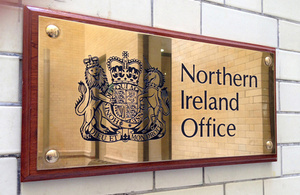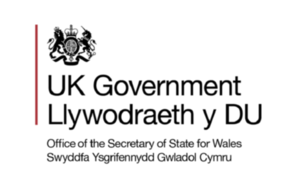Good afternoon and welcome to today’s briefing where I’m joined by Angela McLean, the deputy chief scientific advisor.
I want to being by updating you on the latest data relating to the coronavirus outbreak.
*2,772,552 tests for coronavirus have now been carried out in the UK, including 89,784 tests carried out yesterday; *248,818 people have tested positive, that’s an increase of 2,412 cases since yesterday; *10,025 people are currently in hospital with the coronavirus in the UK, that’s down 17% from the 11,716 this time last week; *And sadly, of those who have tested positive for coronavirus, across all settings, 35,341 have now died. That’s an increase of 545 fatalities since yesterday.
And of course our thoughts are with the families of all of those who have lost their lives to this virus.
Before I turn to some of the work that Defra is doing to ensure that we are able to harvest this year’s farm harvest I want to remind people of the details of the next phase of our fight against the coronavirus.
Firstly on slide one, as you can see, in order to monitor our progress we are establishing a new COVID Alert Level System, with five levels, each relating to the level of threat posed by the virus.
The alert level will be based primarily on the R value and the number of coronavirus cases.
And in turn that alert level will determine the level of social distancing measures in place.
The lower the level the fewer the measures; the higher the level the stricter the measures.
Throughout the period of lockdown, which started on March 23rd, we were at Level 4.
Thanks to the hard work and sacrifices of the British people in this lockdown, we have helped to bring the R level down and we are now in a position to begin moving to Level 3, in careful steps.
Turning now to slide two, We have set out the first of three steps we will take to carefully modify the measures, gradually ease the lockdown, and begin to allow people to return to their way of life – but crucially do this while avoiding what would be a second peak that overwhelms the NHS.
After each step we will closely monitor the impact of that step on the R value and the number of infections, and all the available data, and we will only take the next step when we are satisfied that it is safe to do so.
So in step one, as the Prime Minister announced last week:
*Those who cannot work from home should now speak to their employer about going to work. *People can now spend time outdoors and exercise as often as they like.
Finally, turning to slide three, having taken the first step in carefully adjusting some of the measures and our advice to people on what to do, our clear advice is to stay alert, control the virus, and save lives.
And staying alert means:
*Staying at home as much as possible and working from home if this is possible. *Limiting contact with other people and where contact is made with other people, keeping your distance. *Washing your hands regularly and also staying at home and self-isolating if you or a household member show symptoms of the virus.
My final point today relates to the availability of labour this year for the farming harvest. Every year large numbers of people come from countries such as Romania and Bulgaria to take part in the harvest, harvesting crops such as strawberries, and salads and vegetables.
We estimate that probably only about a third of the people that would normally come are already here and small numbers may continue to travel. But one thing is clear and that is that this year we will need to rely on British workers to lend a hand to help bring that harvest home.
Over the last couple of months we have been working with industry on a plan to support and help people taking second jobs, particularly those who are furloughed, and we have launched a new ‘Pick for Britain’ website that enables people to go online, check (what job issues there are) what job availability there is and to marry up job opportunities from growers and employers with those people seeking a second job, particularly those that are furloughed.
We believe that those who are furloughed may be getting to the point that they want to lend a hand and play their part. They may be wanting to get out and they may be wanting to supplement their income with an additional job and if they do feel that way I would urge them to visit that website and to look at the opportunities that are there.
I will now turn to Angela McLean who will give you further updates on the coronavirus.


